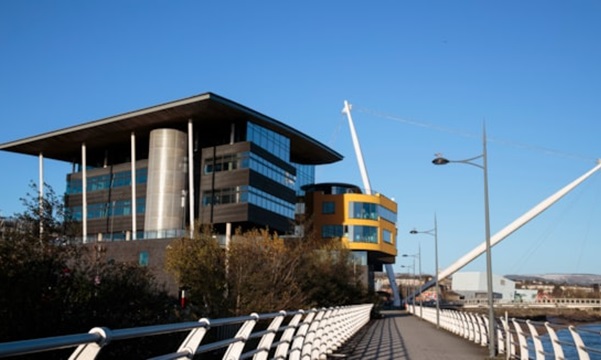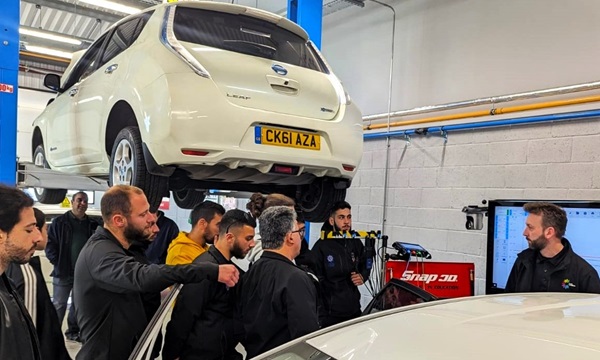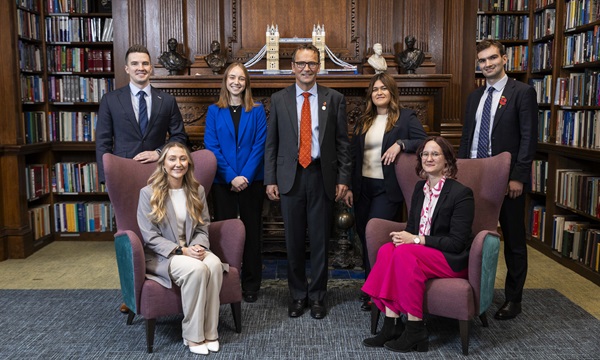
Guest Column:
Cerith Rhys Jones
Senior Manager, External Affairs
The Open University in Wales

The Open University (OU) has been at the forefront of flexible higher education since its founding in 1969. Originally conceived as a “University of the Air,” it has always been about enabling access to education in a way that fits around people’s lives.
We understand that not everyone can, or even wants to, commit to a full-time, campus-based education. People may have jobs, families, caring responsibilities, or other commitments that make traditional university education impossible. That’s where The Open University comes in.
Unlike traditional universities, the OU doesn’t have a formal campus in the way you might think. Our main base is in Milton Keynes, and we have offices across the UK, including in Wales. But our focus is on providing a flexible, high-quality education that can be tailored to the needs of individual students. Whether someone wants to study at a high intensity or at a slower pace, the OU’s model allows them to combine learning with the other important aspects of their lives.
Our mission is simple: to offer opportunities for people to upskill, reskill, and pursue lifelong learning at every stage of life. This model has made us the UK’s only four-nation university.
A significant part of the work we do at The Open University is understanding the skills landscape across the UK, and one of our most important tools for this is the Business Barometer. This annual report, produced in partnership with the British Chambers of Commerce (BCC), provides an overview of the skills challenges and opportunities businesses face across the UK.
The Business Barometer gathers data from businesses of all sizes and sectors, and it is particularly important for us here in Wales, where small and medium-sized enterprises (SMEs) make up about 90% of the economy. The Barometer is a vital resource for understanding how businesses are grappling with skills shortages, recruitment challenges, and workforce development needs.
Our connection to the British Chambers of Commerce is a key asset. Our Chancellor, Baroness Lane-Fox of Soho, also serves as the President of the BCC, which allows us to collaborate effectively and gather insights from a wide range of businesses. This partnership means that the Business Barometer offers a rich and comprehensive view of the skills landscape across the UK.
So, how do we gather this information? Each year, we conduct a survey of around 1,300 businesses from all four nations of the UK. These businesses represent a wide variety of sectors and geographies – rural, urban, small, and large. However, given that SMEs are the backbone of the Welsh economy, the Barometer often reflects the particular challenges and opportunities that smaller businesses face.
The Business Barometer focuses on understanding the skills gaps and skills shortages that businesses are experiencing. It also highlights the emerging opportunities in sectors such as digital, green technology, and advanced manufacturing, and it captures a broad picture of the skills challenges businesses face in different regions.
For businesses, education providers, and policymakers, having accurate and up-to-date information on skills needs is crucial. This data allows us to better understand the economic environment and develop tailored strategies that can address the specific challenges that businesses face, whether that’s finding employees with the right technical skills, adapting to the green economy, or dealing with a shortage of digital expertise.
The Business Barometer doesn’t just provide a snapshot of the present; it also helps us anticipate future needs. This is particularly valuable for institutions like The Open University, where we can use the data to inform our course offerings, ensuring that we’re providing the right training and upskilling opportunities to meet the needs of businesses and employees alike.
In Wales, the skills landscape is unique. We have a higher proportion of SMEs, and many of our businesses operate in rural areas, where access to skilled workers can be more challenging. The Business Barometer helps us understand the specific needs of these businesses and the barriers they face, whether that’s in recruitment, retention, or workforce development.
One of the key insights from this year’s Business Barometer is the increasing demand for digital skills across all sectors. As more industries embrace digital transformation, the need for employees who can adapt to and thrive in a digital environment is more pressing than ever. The Open University is committed to supporting Welsh businesses by providing flexible, online learning opportunities that can help upskill workers in these critical areas.
By working closely with businesses, policymakers, and education providers, we can ensure that the Welsh economy remains competitive and that our workforce is equipped with the skills needed to thrive in a rapidly changing world. The Business Barometer is just one tool in this effort, but it’s a powerful one that helps us understand not just the challenges, but also the opportunities that lie ahead.







